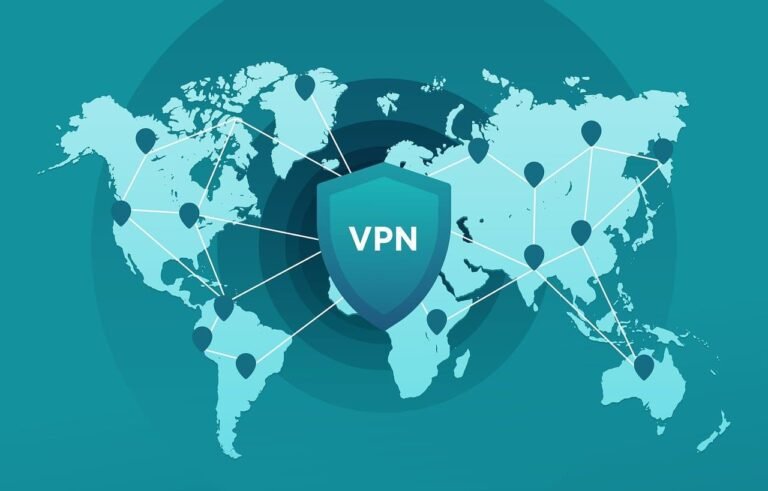Introduction
In an increasingly connected world, protecting our sensitive data and ensuring secure online activities has become crucial. Many individuals and businesses alike rely on Network Attached Storage (NAS) devices to store and access their data remotely. However, the need for an additional layer of security arises when accessing NAS devices over the internet. This is where a Virtual Private Network (VPN) comes into play.
A VPN enables you to create a secure connection between your device and the NAS, encrypting your internet traffic and providing an added layer of protection against data breaches and unauthorized access. In this article, we will explore how to install a VPN on NAS devices and the benefits it offers.
VPN Installation on NAS Devices
Setting up a VPN on your NAS device may vary depending on the brand and model you own. However, the general steps to install a VPN are as follows:
Research VPN compatibility: Before diving into the installation process, it is important to ensure that your NAS device is compatible with VPN software. Check the manufacturer’s documentation or website for specific details on VPN support.
Choose a VPN provider: Selecting a reliable and reputable VPN provider is essential. Look for providers that offer compatibility with NAS devices and have good reviews for their security features, performance, and customer support. Some popular VPN providers that offer NAS compatibility include ExpressVPN, NordVPN, and CyberGhost.
Obtain VPN software: Once you have chosen a VPN provider, sign up for their service and download the appropriate VPN software. Most VPN providers offer dedicated apps for various platforms, including NAS devices.
Configure the VPN software: Launch the VPN software on your NAS device and follow the on-screen instructions to configure it. You may need to enter your VPN provider’s credentials or server settings during the setup process.
Connect to a VPN server: After configuring the VPN software, select a VPN server location that suits your needs. VPN providers usually offer servers in multiple countries, allowing you to choose one that provides optimal speed and performance.
Test the VPN connection: To ensure that your VPN is working correctly, perform a test by accessing your NAS device remotely. If everything is set up correctly, you will be able to connect securely to your NAS and access your data.
Benefits of VPN Installation on NAS
Installing a VPN on your NAS device offers several advantages:
Enhanced Security: By encrypting your internet traffic, a VPN prevents unauthorized access and safeguards your sensitive data. This is especially important when accessing your NAS device over unsecured or public networks.
Remote Access: With a VPN, you can access your NAS device from anywhere in the world, as long as you have an internet connection. This allows you to retrieve or upload files, stream media, and manage your data remotely.
Bypassing Geographical Restrictions: Some content or services may be restricted in certain regions. By connecting to a VPN server in a different location, you can bypass these restrictions and access the content or services that you need.
- Anonymity and Privacy: A VPN masks your IP address, making it difficult for third parties to track your online activities. This helps protect your privacy and ensures a certain level of anonymity while browsing the internet.
FAQ
| Question | Answer |
|---|---|
| What is a VPN and why do I need a VPN? | A VPN, or Virtual Private Network, is a tool that creates a private and secure connection between your device and the internet. It encrypts your internet traffic, allowing you to browse the web anonymously and securely. A VPN is essential for protecting your online privacy, accessing region-restricted content, and ensuring data security. To learn more about VPNs, visit What is a VPN and why do I need a VPN? |
| Is VPN illegal or is VPN legal? | VPNs are legal in most countries and widely used for various purposes, including enhancing online security and privacy. However, some countries have imposed restrictions on VPN usage. It is important to research and comply with the laws and regulations regarding VPN usage in your specific region. To know more about the legality of VPNs, visit Is VPN illegal or is VPN legal? |
| Can I install a VPN on any NAS device? | While most NAS devices are compatible with VPN software, it is recommended to check the manufacturer’s documentation or website for VPN compatibility. Each NAS brand and model may have different instructions for VPN installation. |
| Are there any performance impacts when using a VPN on NAS? | Using a VPN may result in a slight performance impact due to the encryption and routing of your internet traffic. However, the extent of the impact depends on various factors such as the VPN provider, server location, and your internet connection speed. It is advisable to choose a VPN provider that offers fast and reliable servers for optimal performance. |
Further Reading
For more information on installing VPNs on NAS devices, you may find the following resources helpful:
Please note that the above external resources are provided for reference purposes only and we do not endorse or have any affiliation with the mentioned websites.
In conclusion, installing a VPN on NAS devices provides an additional layer of security and allows for remote access to your data. By following the steps outlined in this article, you can enjoy the benefits of enhanced privacy, secure file transfers, and seamless access to your NAS device from anywhere in the world. Remember to choose a reliable VPN provider, configure the software correctly, and test your connection to ensure a smooth and secure experience. Stay safe and protect your data with a VPN on your NAS.




